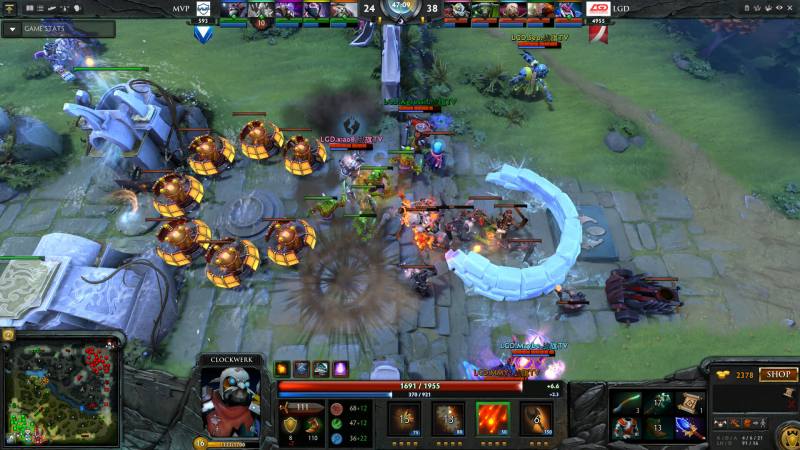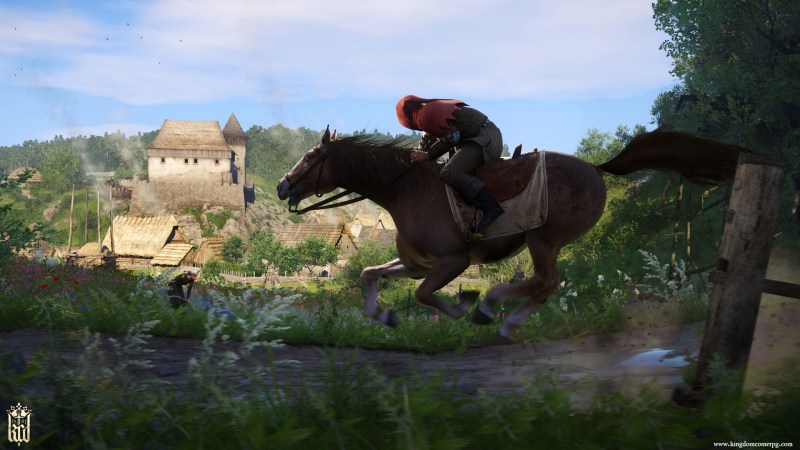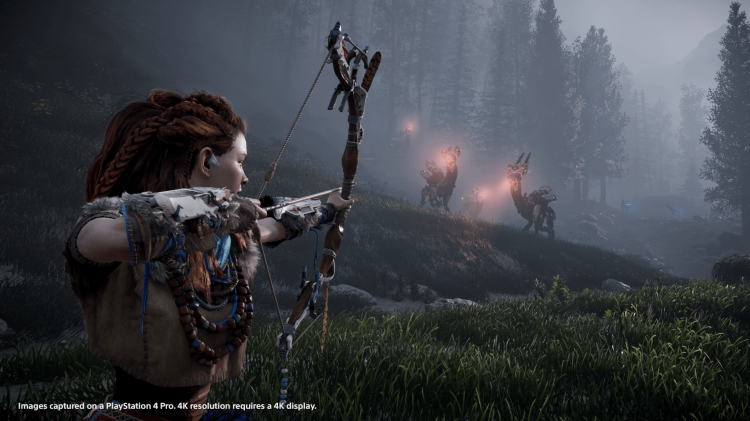With the recent cancellation of Visceral’s single-player Star Wars game, shifting focus of big publishers on multiplayer games and more than stellar success of cooperative multiplayer games like PlayerUnknown’s Battlegrounds, gamers are starting to ask questions. Are single-player story-driven games dead? Do players want them contrary to what some big publishers say? Do they have big commercial potential? Is multiplayer the only future of gaming?
Different strokes
Multiplayer and single-player games are two quite different things, two quite distinct experiences. For the most part, they each cater to a different target group. You go for multiplayer games when you feel like competing, to get a quick buzz of some action, or to wake up your reflexes. You reach for a single-player game when you want a more immersive experience. Exploring new worlds, getting deeply involved in the adventure story of some interesting character, solving complex tasks, and getting not just your reflexes but the rest of your senses primed and honed. It’s arguably something like the difference between going to see the football match and going to the theater.
Which, of course, doesn’t mean that you can’t be a fan of both. You get to see some theatrical performances on the football pitch, or a drama on stage about football, but they remain two quite distinct worlds. They can interweave of course, and there’s no hard and fast boundary line. Likewise, you can have a multiplayer game with some crossover (Destiny), or a single-player game with multiplayer elements (Dark Souls).
But is interest in single-player games really in decline? Do all players want fast, repetitive, action-packed experiences, and nothing else? When you look at the recent charts of the most sought-after and best-selling games, the answer is clear; no way. Uncharted 4, Dishonored 2, The Last of Us, Rise of the Tomb Raider, Horizon: Zero Dawn, Persona 5, Hitman, Nier: Automata… Just a quick roundup of some of the most successful, most acclaimed, and most keenly awaited single player games of recent times. Their bigger open world relatives like Assassins Creed, Red Dead Redemption 2, GTAV, Witcher 3, Fallout 4, Zelda: Breath of the Wild or Divinity: Original Sin 2 are also doing quite fine. I don’t see how something so supposedly ‘dead’ could be so successful at the same time. Folks that want to play single-player haven’t just vanished.
June 5th: The AI Audit in NYC
Join us next week in NYC to engage with top executive leaders, delving into strategies for auditing AI models to ensure fairness, optimal performance, and ethical compliance across diverse organizations. Secure your attendance for this exclusive invite-only event.
So, where’s the problem? Why do some of us feel that single-player games are on the wane? Why do publishers argue that players are looking for other things?

Above: DOTA 2
Publishers are chasing the biggest hits
I’ve come across similar jitters several times in the past. After the massive success of the first MMORPG games, most notably World of Warcraft, it seemed for a moment that no one would be making anything except MMOs. After that, almost all the attempts to emulate WoW crashed and burned and the big publishers have come back to single-player games, while WoW is still with us to this day.
A few years later, after the success of DOTA and League of Legends, there was once again the huge boom of MOBA games. And once again, almost all of them have failed. And there sure were plenty out there.
So, when in 2009 or so I was going round looking for investors and publishers to raise money for Kingdom Come, which is a single-player story-based RPG, everyone wanted Facebook games and they were tapping their foreheads asking why on earth I wanted to do something with no future. The publishers were in panic mode, because for some unfathomable reason they were scared the new console games wouldn’t sell and everyone would be playing nothing but Candy Crush Saga on smartphones. It was like they thought that all those people that flood into E3 and Gamescom every year and spend huge sums on hardware would suddenly vanish or start playing pay-to-win things on their iPhones. Which had nothing to do with reality, of course. The new consoles went on to sell better than ever before.
Why is that? What makes online playing so appealing to publishers and why do so many of them end up paying the cost of their ambitious folly? And what’s the impact on the single-player story games? What is their main advantage over any multiplayer games? The answer is very simple. Long-term regular income and relatively low initial investment.
When that works out, your company will be in clover for a good few years. Another advantage is that you have control over the way the game develops and you can continuously improve it. Especially in the case of smartphone games you invest a smaller amount in the first version/prototype of the game, go for an open beta approach, and if it catches on, you keep funding it. You then constantly fine-tune the game based on feedback, and the built-in analytics, and when it all works out, that’s when you pile on the money and then just reap the rewards, adding new things to keep attention. That’s how many of the early access games on Steam are positioned: PUBG, ARK, H1Z1, DayZ.
Compare that with the single-player game, where you take a chunk of money, wait for a few years, and then, if it doesn’t sell within a month, you’re out of luck. You can’t do much to update the game that people are in the middle of playing, and so, after the initial sale, apart from some DLCs, it won’t keep bringing in the money for you.
That makes it look like a clear choice in favour of MMOs. Better risk spread, long-term profitability. What more could you want?
Opportunity costs both players and publishers
But there’s one little tiny detail. When everyone is spending hundreds of hours playing with one cash cow, and pouring money into it, they can’t at the same time spend their money on other cash cows. The number of players is limited, their time and money is, too. A player with a hundred dollars and ten hours of gaming time can either spend all their time and $100 on one game or spend $30 and less time each on three. That might not be quite what’s needed to keep the cash cow alive.
And so, every time a new trend comes along, the battle is on for pole position. There’s usually just one winner, and the losers go back to doing what they were doing before. And not surprisingly, it’s the big publishers that fight the big battles. Only they have the means to do something like that and it is largely they, the big corporations, who have the greatest interest in stable and lasting income. The entertainment business is fickle, success hangs on the momentary tastes of the public and it can be very tricky to predict. The one who launched a bestseller yesterday may have huge problems with the next title; that’s where a steady income helps. But the market only has room for a limited number of turf-owners, and so when the fight is done and the players make their choice, the rest will still gladly go back to doing something that, though it doesn’t earn as much, gives a much greater chance of making headway.
And that’s where single-player games are the best bet. While the MMO player will play one game all year, a single-player gamer will buy and play five. There’s a much greater chance that even a less-than-wow game will at least pay for itself, if it doesn’t bring in a windfall. The percentage of failed single-player games is relatively small, and if the game isn’t an out-and-out technical disaster, it will generally pay for its development, at least. What’s more, competition is quite weak at the moment. High-quality single-player story-driven games are few and far between, and there’s a hunger out there, which is the reason why they sell so well when something new does come out.
My own experience is just that. I’m a developer, and, of course, a gamer too. I like RPGs like Fallout, The Elder Scrolls, or Witcher. And these games sell in their tens of millions. But a similar (good) game only comes out once every two years. And so I said to myself, there’s definitely room on the market for another equally good title, and let’s do it. But when I went round the publishers, absolutely no one wanted to hear about any such game. Too risky, too niche, something that only company XY can make, we don’t deal in those kind of games. Finally, we went out on Kickstarter, as a way to get the game done. And as soon as we declassified and announced our venture, it turned out the number of gamers out there keen on something like this was quite huge. Almost instantly, we collected 1.8 million dollars, the game piqued media interest, and took its place among the most highly anticipated titles. Much the same happened with the new generation of consoles, which some people had almost written off.

Above: Kingdom Come: Deliverance by Warhorse Studios
Players still want single-player
Of course, none of this means our battle has been won yet. The game must be especially good to be successful. But now it’s all up to us, whether we can convert the interest we’ve gained; but in any case, I find it clear proof that single-player game fans have not disappeared anywhere and that they are eager to buy the next great thing after Uncharted, Assassins Creed, Witcher, or Red Dead Redemption. The gaming industry is a bit cagey to let them have such an experience though, because the people who control the money are too busy right now worrying which of them will win the war for the best cash cow for the next few years.
But the situation is far from tragic. We can’t quite see it yet, because game development is a long process and it takes a while to respond to new trends, but there are a few smaller publishers queuing up, who’ve made quite a bit of money in recent years and are focusing on niche genres, itching to fill the spaces left vacant by the megasaurs. And trust me, they have some games in development, you just don’t know it yet.
And so, as with the adventure games genre, whose demise was preannounced many times, and which has indeed has been producing some very high-quality titles recently, e.g. Telltale Games make a good living out of adventure games; single-player is not about to retire any time soon, either. It’s just that not every new game will necessarily be produced by multinational corporation like before, but by smaller indie teams, too. And when the mega-publishers find, as in the case of MMO, MOBA games and Facebook that the market is not infinitely inflatable, they will be only too glad to come back again, to produce a good old single-player hit. Capitalism tends to meet demand with supply.
Daniel Vávra is creative director and cofounder of Warhorse Studios, developers of the upcoming Kingdom Come: Deliverance.


